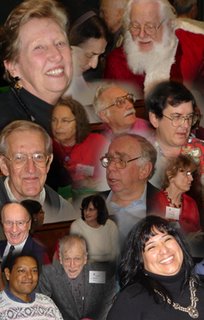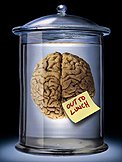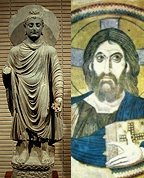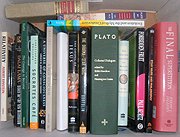
It has recently been
reported that two men have been charged for murdering 18-year old Terrel Pough. Terrel had recently been featured in People Magazine for pulling his life together in order to provide for his daughter, Diamond. As
People reported Recently...
"A former street-tough kid, Pough was raised by his maternal great-grandparents and never knew his own father. His life changed, however, when he learned at 15 that his then-girlfriend, Charmaine Houston, also 15, was pregnant. Although Pough and Houston drifted apart, Pough pledged to support their child... Pough was determined to find a good job in construction so he could provide greater opportunities for Diamond."When I saw the arrests reported on television on the morning news, the reporters portrayed the irony of the event and the sense of futility was apparent in their tone. I thought that there must be many people out there struggling in harsh conditions who may be wondering, "what's the point of trying if this sort of thing can happen to people like Terrel?"
While it's true that bad neighborhoods and low-income areas have higher crime rates and are more dangerous, the fact is that any of us can die at any moment, for any number of reasons. There has always been a common frustration at these series of random events beyond our control. It was this which inspired Shakespeare's character Macbeth to bemoan that, unlike films and books, our life is instead "
a tale told by an idiot, full of sound and fury, signifying nothing."
Many ancient Stoics, like folks today who live under dangerous hardships, lived in a world where life was often short, brutal, and cheap. They too saw life as a tragic hurricane of events larger than ourselves, which we are helpless to control.
But the Stoic response to this fact of life was to first recognize that it is this flow of events which allows us to exist in the first place. All things which we consider good and bad flow from that great flux of events. Other traditions and teachers have noticed this as well. Jesus of Nazareth pointed out that it rains on both the just and the unjust. The Buddhists refer to this tapestry of life as "Indra's Net". They would also note there is no way to win the "if only" game. Stoics would say that everything that is, is because of the Way of Nature, and there is no other way things
can be, than how they are.
But secondly, and more importantly, the Stoics go beyond recognizing what we can't control and focus on what we
can control. Stoicism teaches us that the only thing we can really control is our inner choices, and the only valuable thing we can ever call truly "good", is our choice to be virtuous. All else (family, friends, possessions, status, career) can be taken from us in a heartbeat.
If folks out there are thinking that all of Terrel's efforts to better himself to provide for his daughter were wasted or futile, then they should consider what effects his virtuous efforts really had, and will continue to have. Consider the support already provided to Diamond. Consider Terrel's inspiration to other young people like himself. Consider the inspiration Terrel's efforts and his fate has had on others to lend a hand to Diamond and her family. Consider what an inspiration Terrel will be to his daughter in years to come. Lastly, consider the fact that Terrel's life, while it lasted, was improved by the joy and pride inherent in doing the right thing and living a good life.
The Stoic Epictetus said that virtue was both necessary
and sufficient for happiness. While a lot of events beyond our control can effect our lives,
we control how we respond to those events, and that response goes back into that tapestry - usually continuing on to have effects larger than we imagined. Nothing can ever change the fact that we chose virtue when faced with the choice.
I never knew Terrel Pough, but I suspect that his years, obligations, and interests probably kept him from ever learning much about ancient philosophers. Be that as it may, the irony and pain of tragedy is eternal to all human beings and the wisdom found throughout the ages is therefore applicable today as well. Many of these thoughts, I'm certain, Terrel
did understand, for as he himself once said, "
If something ever happens to me, no one can ever tell her that her dad didn't take care of her."
----------------
I happened upon information for making donations on Bloggingbaby.com for those wishing to, and thought it would be a good idea to pass on the info...
Terrell Pough Memorial Fund
YouthBuild Charter School
1231 N. Borad Street
Philadelphia, PA 19122
Diamond Houston Fund
c/o Sovereign Bank
8319 Stenton Avenue
Philadelphia, PA 19150
 I've been reading a textbook I have on the history of religion, as well as a number of Buddhist websites and Wikipedia articles, trying to understand the historic relationships between the various Buddhist schools. I made this chart in an effort to work out what I was reading (click on it to enlarge, then hit your 'back' button to return). However, I have no idea how accurate it is, so please take it with a grain of salt. I am also posting a reference to this page on the www.comparative-religion.com forums (in the Buddhist forum of course). Click here to see that forum page. Hopefully folks there can tell me if my chart is accurate. If not, I'll probably correct by editing this post.
I've been reading a textbook I have on the history of religion, as well as a number of Buddhist websites and Wikipedia articles, trying to understand the historic relationships between the various Buddhist schools. I made this chart in an effort to work out what I was reading (click on it to enlarge, then hit your 'back' button to return). However, I have no idea how accurate it is, so please take it with a grain of salt. I am also posting a reference to this page on the www.comparative-religion.com forums (in the Buddhist forum of course). Click here to see that forum page. Hopefully folks there can tell me if my chart is accurate. If not, I'll probably correct by editing this post.








